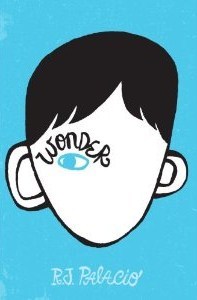Re-Teaching Disability
As an early childhood teacher, after reading the three articles, I immediately rummaged through my classroom library. I searched for pieces of literature that discussed and highlighted the topic of disability and sadly to my realization I had very few. I also enjoyed reading in Disability in Children's Literature by Liz Crow examples of how disabilities are misrepresented. She gave the example of Captain Hook (disabled people are menacing and dangerous), Tiny Tim ( disabled people are innocent and saintly) or Helen Keller (disabled people are an inspiration to us all). Even reflecting on movies, I can't think of many movies that don't misrepresent those who do have disabilities. I wonder for those teachers out there, do any of you have pieces of literature that adequately presents those with disabilities and how do you incorporate this topic into your curriculum and classroom?

This article does list some great books like Wonder and others that I read growing up.
I wanted to share a link to a pdf article : The Nine Ways to Evaluate Children's Literature that address disability as part of diversity
This article overall made me do a lot of self-reflecting. I do incorporate lessons on dis/abilities but not to the extent that I truly should be. The curriculum can be constraining with the literally word for word scripts that my district insists we follow. I try to incorporate such topics during our writing block which is pretty much the only subject area without a manual. Currently we are learning about materials and motion and creating ramps. I plan to include an investigative lesson on wheelchair ramps in our school and community. Does anyone know of or have examples of curriculum that do include dis/ability? I tried to do some research online and couldn't find anything that great.
In Disability Studies in Education, a particular quote resonated with me. " Yet the lines drawn to produce the "existence" of mild disabilities are no less arbitrary than those drawn to establish moderate or severe disabilities. Where, after all, is the cutoff between non-disabled and mildly disabled, between mildly disabled and moderately or severely disabled? Are not all of these lines in the end, judgement calls? And are not these lines premised on our beliefs about what constitutes normal, concept that is itself context-development." Where is the line? I find this to be a loaded question.


This article does list some great books like Wonder and others that I read growing up.
I wanted to share a link to a pdf article : The Nine Ways to Evaluate Children's Literature that address disability as part of diversity
This article overall made me do a lot of self-reflecting. I do incorporate lessons on dis/abilities but not to the extent that I truly should be. The curriculum can be constraining with the literally word for word scripts that my district insists we follow. I try to incorporate such topics during our writing block which is pretty much the only subject area without a manual. Currently we are learning about materials and motion and creating ramps. I plan to include an investigative lesson on wheelchair ramps in our school and community. Does anyone know of or have examples of curriculum that do include dis/ability? I tried to do some research online and couldn't find anything that great.
In Disability Studies in Education, a particular quote resonated with me. " Yet the lines drawn to produce the "existence" of mild disabilities are no less arbitrary than those drawn to establish moderate or severe disabilities. Where, after all, is the cutoff between non-disabled and mildly disabled, between mildly disabled and moderately or severely disabled? Are not all of these lines in the end, judgement calls? And are not these lines premised on our beliefs about what constitutes normal, concept that is itself context-development." Where is the line? I find this to be a loaded question.

This makes me think of how it is decided whether or not a child receives special education services or qualifies for an IEP or 504. I know obviously there are assessments, observations that are done. How do we as educators decide who gets accommodations/ modifications and who doesn't? My class room is the emergent bilingual classroom as well as having the kindergartners who require special education. My special educator does a wonderful job connecting with ALL my students and co-teaching. My classroom is differentiated in every subject area as well as providing visuals, manipulatives, technology, etc.
Comments
Post a Comment